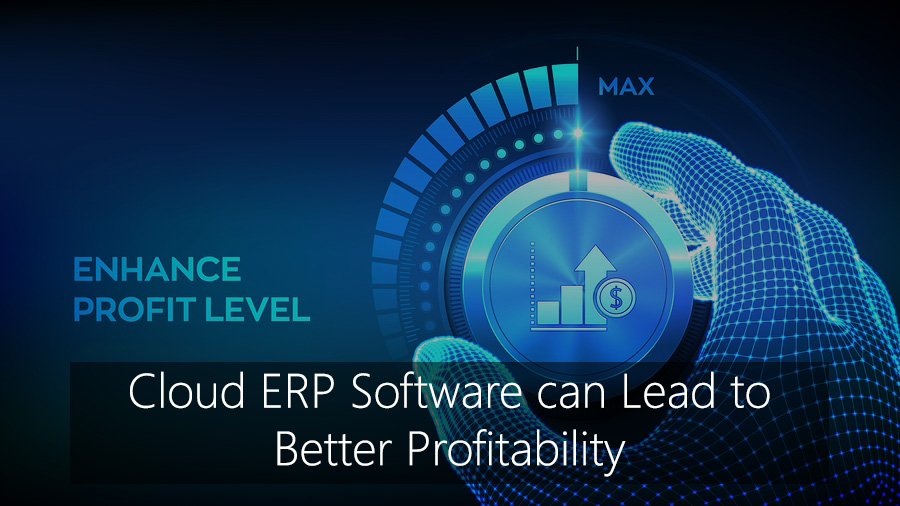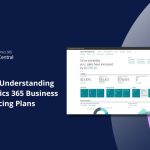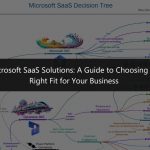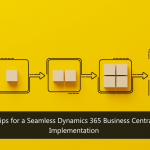
Improving business processes and customer relationships–are two big benefits from using cloud ERP software in–sectors like manufacturing, shipping and distribution.
Moreover, in a bid to achieve better profitability, companies are also using analytical software to turn their collections of Big Data into actionable strategies.
Analyzing ‘meaningful’ data
The key is not simply accumulating terabytes of information, but choosing the right analytics for the “fast meaningful processing (of) large data sets.”
With such successful outcomes, it is not surprising–according to a recent Forbes survey of IT execs and decision makers–that many companies continue doubling down on analytics:
“Companies have consistently told us their (company’s) success increasingly depends on analytics and more than 90 percent said they plan to increase spending on BI tools.”
Today, data-analysis methods that rely heavily on legacy programs like Excel–or other third-party software–come with limited options: Financial reports, for example, may be developed around historical versus real-time information; this, after searching silos of information held on multiple PCs, and keeping track of multiple open pages.
Improving cash-flow management and team collaboration
Savvy business owners are looking to migrate their data to cloud ERP for better accounting, purchasing and inventory control. As a result–moving from legacy programs to a cloud ERP solution–business tasks can be accomplished with fewer data entry errors; better collaboration among team members; fewer disruptions to the supply chain, thanks to enhanced purchase-order processing. Overall cash flow improvements can also mean a better return on equity (ROE).
Consider a Dynamics 365 partner or just an ERP partner in order to learn more about the benefits of deploying Microsoft Dynamics products or other ERP software will strongly benefit your business. Dynamics 365 implementation or other ERP implementation is highly recommended with a solely dynamics 365 training. Ultimately, by integrating this cloud technology benefit with productivity increases due to ease-of-use and reduced reliance on IT–New code isn’t necessary for configuration and the software deploys easily.
Once deployed, businesses can then update data from their legacy systems without impacting critical functions.
The initial checklist for transitioning from an on-premises data center to a hybrid cloud in tandem with Azure hosting service is more about sustaining a consensus from stakeholders first before deployment.
The importance of being earnest in this ‘journey.’
Moreover, according to Forbes, the “journey migrating to hybrid cloud” is inextricably tied to those “important decisions that your company absolutely must get right to avoid delaying or derailing the digital initiative…”
“A crucial issue that your company’s CIO, CTO or CFO will constantly face on this journey is how to sustain organizational support for the vision and new target digital operating model. It will require evolving your organization to support an unfolding journey.”
Don’t be too quick to deploy.
Of course, in some cases, businesses will decide to move their applications “as is,” which constitutes the “lift and shift” approach. But doing so can also attach any, or all, of “existing issues associated with it to the cloud.”
However, companies eager to transition from their legacy on-premise systems are still not jumping all-in when migrating to the cloud. In fact, in a recent survey of tech leaders reported on ZDNet, only “12 percent” are signing on to this approach. This reflects a larger percentage (71 percent) surveyed who see their on-premise apps as “mission critical,” and 20 percent aligning their strategies with “SaaS-based” apps in the cloud.
A case for ‘testing and staging’…
Not quite ready yet to deploy? TMC Azure Cloud provides for tests and staging before final deployment. Ultimately, Azure will auto scale web and mobile apps, and, in addition to offering SaaS, provide the back-end workings to run PaaS as well as IaaS. Consequently, businesses are able to concentrate on processing tasks with enhanced productivity.
Visit our website’s resources to learn more about our solutions in order to further your understanding of financial and business management systems. Team up with a certified Microsoft Gold Partner to make your migration to the cloud seamless. If you have any questions regarding Dynamics 365 or other ERP/CRM systems, you can contact us here.
Don’t forget to follow us on Facebook, LinkedIn, and Twitter. Subscribe to our YouTube channel for insightful tutorials and demos.





